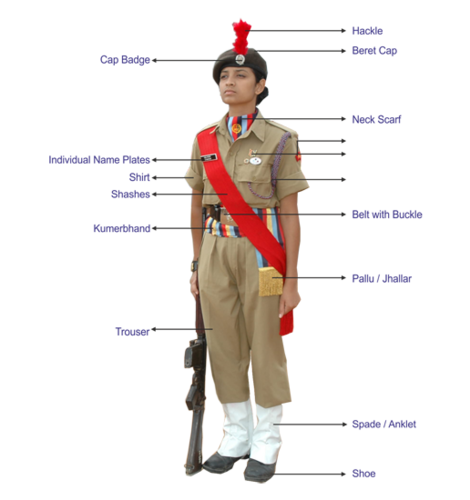Subhas Chandra Bose
Subhas Chandra Bose
Welcome to my blog and thank you for this much support. So let's start. Today's blog is based on "Subhas Chandra Bose". Subhas Chandra Bose was born on 23 January 1897 (at 12.10 pm) in Cuttack, Orissa Division, Bengal Province, to Prabhavati Dutt Bose and Janakinath Bose, an advocate belonging to a Kayastha family.
He was the ninth in a family of 14 children. His family was well to do. He was admitted to the Protestant European School (presently Stewart High School) in Cuttack, like his brothers and sisters, in January 1902. He continued his studies at this school which was run by the Baptist Mission up to 1909 and then shifted to the Ravenshaw Collegiate School. After securing the second position in the matriculation examination in 1913, he was admitted to the Presidency College where he studied briefly. He was influenced by the teachings of Swami Vivekananda and Ramakrishna after reading their works at the age of 16.
He felt that his religion was more important than his studies. In those days, the British in Calcutta often made offensive remarks to the Indians in public places and insulted them openly. This behavior of the British as well as the outbreak of World War I began to influence his thinking.
His nationalistic temperament came to light when he was expelled for assaulting Professor Oaten (who had manhandled some Indian students) for the latter's anti-India comments. He was expelled although he appealed that he only witnessed the assault and did not participate in it. He later joined the Scottish Church College at the University of Calcutta and passed his B.A. in 1918 in philosophy.Bose left India in 1919 for England with a promise to his father that he would appear in the Indian Civil Services (ICS) examination. He went to study at Fitzwilliam College, Cambridge and matriculated on 19 November 1919. He came fourth in the ICS examination and was selected, but he did not want to work under an alien government which would mean serving the British. As he stood on the verge of taking the plunge by resigning from the Indian Civil Service in 1921, he wrote to his elder brother Sarat Chandra Bose: "Only on the soil of sacrifice and suffering can we raise our national edifice." He resigned from his civil service job on 23 April 1921 and returned to India.
Bose advocated complete unconditional independence for India, whereas the All-India Congress Committee wanted it in phases, through Dominion status. Finally, at the historic Lahore Congress convention, Congress adopted Purna Swaraj (complete independence) as its motto. Gandhi was given rousing receptions wherever he went after Gandhi-Irwin pact. Subhas Chandra Bose, traveling with Gandhi in these endeavors, later wrote that the great enthusiasm he saw among the people enthused him tremendously and that he doubted if any other leader anywhere in the world received such a reception as Gandhi did during these travels across the country. He was imprisoned and expelled from India. Defying the ban, he came back to India and was imprisoned again.
His most famous quote was "Give me blood and I will give you freedom". Another famous quote was Dilli Chalo ("On to Delhi)!" This was the call he used to give the INA armies to motivate them. Jai Hind, or, "Glory to India!" was another slogan used by him and later adopted by the Government of India and the Indian Armed Forces. Another slogan coined by him was "Ittihad, Etemad, Qurbani" (Urdu for "Unity, Agreement, Sacrifice"). INA also used the slogan Inquilab Zindabad, which was coined by Maulana Hasrat Mohani.
" जीवन में प्रगति का आशय यह है की शंका संदेह उठते रहें और उनके समाधान के प्रयास का क्रम चलता रहे ! "
for suggestion kindly reach me out :
mail id: arpitmishra1629.ftp@gmail.com
Contact no: 8127430702










Comments
Post a Comment